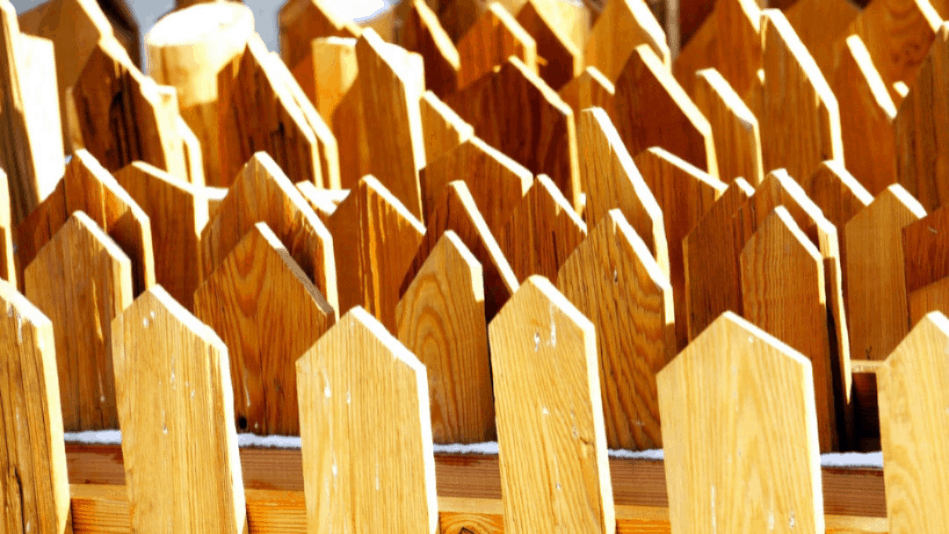All Categories
Featured

Amongst the most prominent choices, wood, vinyl, and light weight aluminum each offer one-of-a-kind advantages and disadvantages. Here's a failure of the pros and cons of these three usual secure fencing products.
Timber Fencing. Timber fence has been a timeless option for house owners because of its all-natural appeal and versatility.
Pros:. Visual Appeal: Timber offers a timeless and cozy appearance that complements a variety of building designs. Adjustable: It can be painted, stained, or reduce into unique designs to suit personal choices. Affordable: Originally, wood secure fencing can be an affordable option compared to various other materials. Eco-Friendly: Timber is a renewable energy and can be sustainably sourced. Cons:. High Maintenance: Wood calls for routine securing, discoloration, or paint to stop rot, insect damages, and weathering. Longevity Issues: Without appropriate care, wood can warp, crack, or decay gradually, especially in areas with high humidity. Shorter Life expectancy: A timber fencing normally lasts 10-20 years, depending on the sort of timber and degree of upkeep. Timber is ideal for those who value a typical look and are prepared to commit to its maintenance.
Vinyl Fence. Vinyl is a modern-day, low-maintenance fence alternative that has actually expanded in popularity over the last few years.

Pros:. Reduced Maintenance: Vinyl does not need painting, discoloration, or securing and can be quickly cleansed with soap and water. Weather Resistant: It endures rough climate condition without decomposing, rusting, or warping. Lasting: Plastic fencings can last 20-30 years with minimal upkeep. Range of Styles: Offered in lots of shades, layouts, and structures, some vinyl alternatives resemble the appearance of wood. Disadvantages:. Greater Upfront Price: Plastic secure fencing can be much more expensive initially contrasted to wood. Brittleness in Winter: In extreme cold, plastic may crack or come to be fragile. Minimal Fixes: Specific panels can be difficult to replace, requiring mindful matching to the existing fencing. Vinyl is best suited for homeowners seeking a sturdy, low-maintenance service with modern aesthetics.
Light Weight Aluminum Secure Fencing. Light weight aluminum secure fencing is a light-weight and resilient alternative, frequently chosen for its modern appearance and flexibility.
Pros:. Rust-Resistant: Light weight aluminum doesn't corrosion, making it an exceptional selection for wet or moist climates. Low Maintenance: Calls for minimal maintenance and is very easy to clean. Sturdy: While light-weight, light weight aluminum is strong sufficient to withstand lots of environmental problems. Lengthy Lifespan: Can last several decades without considerable wear or deterioration. Selection of Styles: Offers a streamlined and sophisticated look, typically made use of for decorative or decorative objectives. Cons:. Higher Expense: The initial financial investment for aluminum fence is greater than wood or vinyl. Much Less Personal privacy: Light weight aluminum fences are usually made with open pickets, making them much less reliable for personal privacy. Vulnerable to Dents: Although durable, aluminum can be nicked by strong influences. Light weight aluminum is excellent for those seeking an elegant, lasting alternative that needs very little treatment.
Making the Right Option. Each secure fencing material-- light weight aluminum, plastic, and timber-- uses distinct advantages and disadvantages. Your decision ought to depend upon your details top priorities, such as spending plan, maintenance choices, climate, and aesthetic objectives:
If you like a standard look and do not mind normal upkeep,Select wood. Choose vinyl if you desire a low-maintenance, weather-resistant fencing with contemporary appeal. Go with aluminum if you focus on toughness, corrosion resistance, and a sleek layout. By evaluating these benefits and drawbacks, you can choose a secure fencing material that improves your property while meeting your functional requirements.
Latest Posts
The Perfect Floor Covering for Every Home
Published Apr 20, 25
1 min read
Auto Repair Services: Professional Vehicle Service & Upkeep !
Published Apr 20, 25
2 min read
Change Your Home with Durable Hardwood Flooring from Carpet Interiors Floor & Home
Published Apr 19, 25
1 min read
More
Latest Posts
The Perfect Floor Covering for Every Home
Published Apr 20, 25
1 min read
Auto Repair Services: Professional Vehicle Service & Upkeep !
Published Apr 20, 25
2 min read
Change Your Home with Durable Hardwood Flooring from Carpet Interiors Floor & Home
Published Apr 19, 25
1 min read